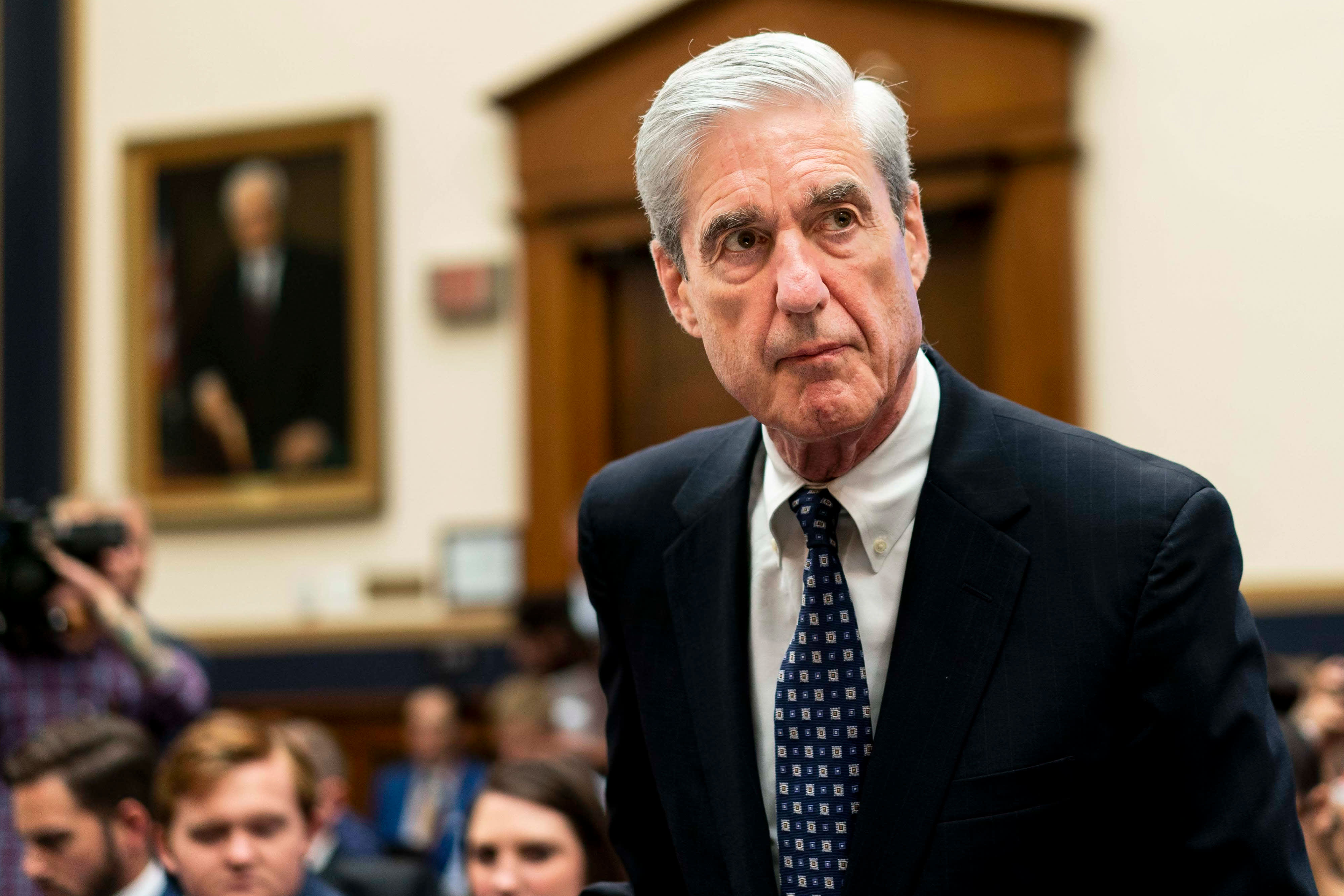Robert Mueller — and special counsel’s office — let the American people down on Trump probe, prosecutor says

Former Special Counsel Robert Mueller testifies before the House Permanent Select Committee on Intelligence on Capitol Hill on Wednesday July 24, 2019 in Washington, DC.
Melina Mara | The Washington Post | Getty Images
Former special counsel Robert Mueller and his office let the American people down with their probe into President Donald Trump‘s campaign and Russian interference in the 2016 election, a prosecutor who served in the special counsel’s office says in a new interview.
Andrew Weissmann, a former top deputy to Mueller, in his forthcoming book “Where Law Ends, Inside the Mueller Investigation,” faulted the special counsel and the office for not doing enough to fully investigate potential criminality and to push back on Trump’s efforts to undermine the investigation.
George Packer of The Atlantic, during an interview with Weissmann, asked “if Mueller had let the American people down.”
“‘Absolutely, yep,” Weissmann said, according to Packer, before quickly adding: “I wouldn’t phrase it as just Mueller. I would say ‘the office.'”
” There are a lot of things we did well, and a lot of things we could have done better, to be diplomatic about it,” Weissmann said in the interview.
When asked if the probe was a historic missed opportunity, Weissmann tersely replied, “That’s fair,” according to Packer.
“There’s no question I was frustrated at the time,” Weissmann told The Atlantic. “There was more that could be done that we didn’t do.”
One of the key things that Mueller did not do was seeking to compel Trump, with a subpoena, to answer questions from the special counsel’s team in person, while under oath.
“In Where Law Ends, Weissmann reveals that the real reason for not compelling the president to be interviewed was Mueller’s aversion to having an explosive confrontation with the White House,” Packer wrote.
Mueller’s investigation led to the successful prosecutions of multiple people in Trump’s orbit, including his one-time campaign chief Paul Manafort, top campaign aide Rick Gates, and the president’s former personal lawyer, Michael Cohen, as well as to indictments against Russians for interfering in the 2016 election.
But Weissmann, echoing others before him, criticizes the probe that he worked on for not being aggressive enough at times to obtain evidence, and from failing to state conclusively whether Trump obstructed justice by interfering in the investigation.
Mueller’s report issued last year had said that the investigation “does not conclude that the president committed a crime,” referring to obstruction of justice, but also “does not exonerate him.”
Packer notes that “Where Law Ends describes numerous instances, large and small, when Mueller declined to pursue an aggressive course for fear of the reaction at the White House.”
“For example, the special counsel shied away from subpoenaing Don Trump Jr. to testify about his notorious June 2016 meeting in Trump Tower with a Russian lawyer offering dirt on Hillary Clinton. Ivanka Trump, who didn’t attend the meeting but talked with participants afterward in the lobby, and later discussed with her father how to conceal details from the press, was never even asked to speak with Mueller’s investigators,” Packer wrote.
In his book, Weissmann wrote that Mueller’s investigators “feared that hauling her in for an interview would play badly to the already antagonistic right-wing press—Look how they’re roughing up the president’s daughter—and risk enraging Trump, provoking him to shut down the Special Counsel’s Office once and for all.”
Elsewhere in the book, Weissmann wrote, “Part of the reason the president and his enablers were able to spin the report was that we had left the playing field open for them to do so.”




